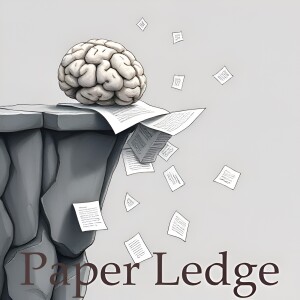

Computation and Language - GuideBench Benchmarking Domain-Oriented Guideline Following for LLM Agents
Hey PaperLedge learning crew, Ernis here, ready to dive into some seriously fascinating stuff! Today, we're tackling a paper that's all about how well AI, specifically those big language models we keep hearing about, can actually follow instructions in the real world. Think of it like this: you've hired a super-smart intern, but they've never worked in your industry before. How well can they learn the ropes and follow your company's specific rules?
That's essentially what this research is investigating. These Large Language Models, or LLMs, are being used as autonomous agents – meaning they're making decisions and taking actions on their own, based on what we tell them to do. We've seen them do amazing things, like writing poems and answering complex questions, which relies on their built-in "common sense."
But what happens when you throw them into a specific field, like healthcare or finance, where there are tons of rules and regulations? These aren't just general knowledge things; they're specific guidelines that might even contradict what the AI thinks is "common sense." Imagine telling your intern to always prioritize customer satisfaction, but then your company policy is that cost-cutting measures always come first. Confusing, right?
"LLMs are being increasingly deployed as domain-oriented agents, which rely on domain-oriented guidelines that may conflict with their commonsense knowledge."The problem is, until now, we haven't had a good way to really test how well these LLMs follow these domain-specific guidelines. It's like trying to grade your intern without a clear rubric. That's where GuideBench comes in! This paper introduces GuideBench as a new benchmark designed to specifically evaluate how well LLMs can follow domain-oriented guidelines.
So, what does GuideBench actually do? It looks at three key things:
- Adherence to diverse rules: Can the LLM understand and follow a wide range of rules specific to a particular field? Think of it like testing your intern on all the different aspects of their job.
- Robustness to rule updates: In the real world, rules change constantly. Can the LLM adapt and update its behavior when the guidelines are revised? This is like seeing how your intern handles a sudden policy change.
- Alignment with human preferences: Does the LLM's behavior align with what humans actually want and expect? This goes beyond just following the rules; it's about understanding the spirit of the rules.
The researchers tested a bunch of different LLMs using GuideBench, and guess what? They found that there's still a lot of room for improvement. The AIs struggled with some pretty basic things, showing that we still have a ways to go before we can fully trust them to operate autonomously in complex, rule-heavy environments.
So why does this matter? Well, if you're in:
- Healthcare: You want to make sure an AI assistant is giving patients the best and most accurate advice, according to the latest medical guidelines.
- Finance: You need to be certain that an AI trading algorithm is following all the regulations and not inadvertently breaking the law.
- Any industry with complex regulations: You need AI that can navigate the complexities and keep your company compliant.
This research highlights the need for better tools and techniques to ensure that AI is not just smart, but also responsible and reliable.
This paper really got me thinking. Here are a couple of questions that popped into my head:
- How can we better design training data and AI architectures to make them more adaptable to evolving rules and guidelines?
- What are the ethical implications of deploying LLMs in high-stakes domains before we've fully addressed their limitations in following domain-specific rules?
What are your thoughts, learning crew? Let me know in the comments!
Credit to Paper authors: Lingxiao Diao, Xinyue Xu, Wanxuan Sun, Cheng Yang, Zhuosheng Zhang
More Episodes
All Episodes>>Create Your Podcast In Minutes
- Full-featured podcast site
- Unlimited storage and bandwidth
- Comprehensive podcast stats
- Distribute to Apple Podcasts, Spotify, and more
- Make money with your podcast












